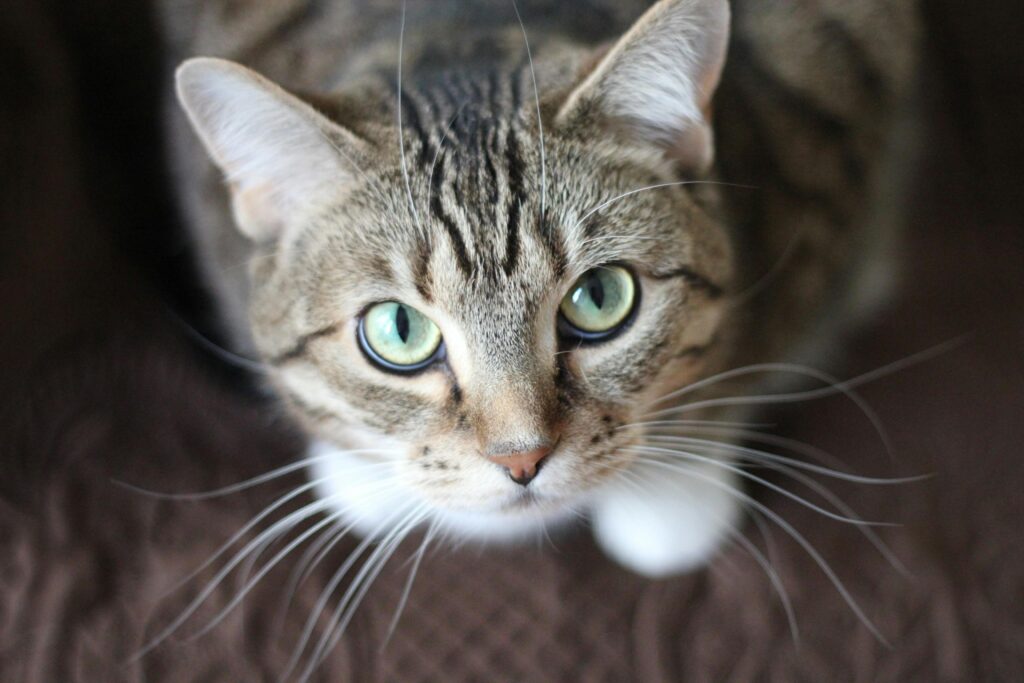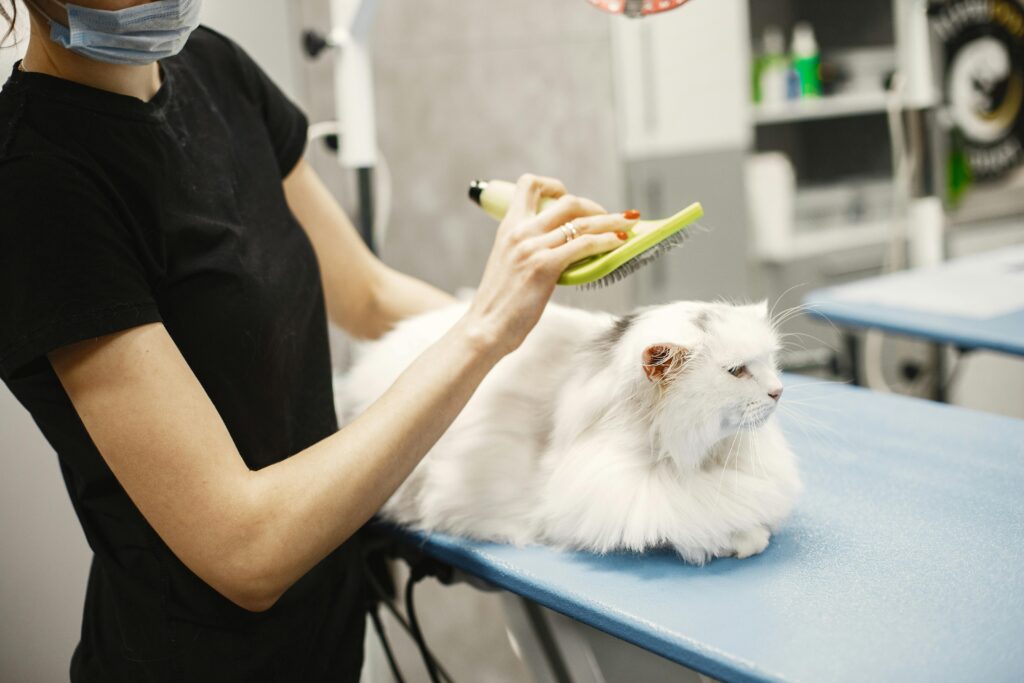As a responsible pet owner, it is crucial to understand the importance of spaying and neutering your cat. Not only does it benefit your feline friend’s health and well-being, but it also plays a significant role in controlling the population of stray and unwanted cats. In this article, we will delve into the reasons why spaying and neutering are essential, debunk common myths surrounding the procedure, and provide answers to frequently asked questions.
1. Preventing Unwanted Pregnancies
One of the primary reasons to spay or neuter your cat is to prevent unwanted pregnancies. Female cats, also known as queens, can go into heat as early as four months old and can have multiple litters each year. By spaying your female cat, you eliminate the risk of unplanned pregnancies and the challenges that come with caring for a litter of kittens.
Neutering male cats, on the other hand, prevents them from impregnating female cats. This helps reduce the number of stray and feral cats, as well as the burden on animal shelters and rescue organizations.
2. Health Benefits for Female Cats
Spaying female cats offers several health benefits. It eliminates the risk of uterine infections, such as pyometra, which can be life-threatening. Spaying also reduces the chances of mammary gland tumors, which can be malignant in cats. The earlier the spaying is performed, the lower the risk of developing these conditions.
3. Health Benefits for Male Cats
Neutering male cats provides health benefits as well. It helps prevent testicular cancer and reduces the risk of prostate problems. Additionally, neutered male cats are less likely to engage in territorial marking behavior and are generally less aggressive.
4. Curbing Behavioral Issues
Spaying and neutering can help curb certain behavioral issues in cats. Female cats in heat can display yowling, restlessness, and increased aggression. Male cats, especially when unneutered, tend to exhibit territorial marking by spraying urine to mark their territory. By spaying and neutering, you can significantly reduce these behaviors and create a more harmonious living environment.
5. Reducing Roaming and Fighting
Unneutered male cats have a strong instinct to roam in search of a mate. This behavior increases their chances of getting into fights with other cats, leading to injuries and the transmission of diseases. Neutering your male cat helps reduce the desire to roam and minimizes the risk of injuries and encounters with other aggressive cats.
6. Controlling the Stray Cat Population
Spaying and neutering play a crucial role in controlling the stray and feral cat population. Stray cats often face harsh living conditions and are more susceptible to diseases and injuries. By spaying and neutering our own cats, we contribute to reducing the number of stray cats and improving their overall welfare.
7. Myths Debunked
There are several myths and misconceptions surrounding spaying and neutering. Let’s debunk a few of them:
Myth 1: Spaying or Neutering Makes Cats Fat
Fact: Spaying or neutering does not directly cause weight gain in cats. However, the procedure may slightly lower their metabolic rate, so it’s important to monitor their diet and provide regular exercise to maintain a healthy weight.
Myth 2: Female Cats Should Have One Litter Before Being Spayed
Fact: There is no medical evidence to support the claim that female cats should have a litter before being spayed. In fact, spaying your cat before her first heat cycle offers the most health benefits and prevents unwanted pregnancies.
Myth 3: Neutering Makes Male Cats Less Masculine
Fact: Neutering does not affect a male cat’s masculinity or personality. It simply eliminates the reproductive capabilities and reduces certain behaviors associated with mating instincts.
Myth 4: Spaying or Neutering Changes a Cat’s Personality
Fact: Spaying or neutering does not change a cat’s fundamental personality. It may help reduce certain behaviors influenced by hormones, such as aggression or marking, but their unique personality traits will remain intact.
Frequently Asked Questions
1. When is the best time to spay or neuter my cat?
Spaying or neutering can be done as early as eight weeks old, but it is best to consult with your veterinarian to determine the ideal age for your cat.
2. Is spaying or neutering a painful procedure for my cat?
The procedure is performed under anesthesia, so your cat will not experience pain during the surgery. Post-surgery, your veterinarian will provide pain management medication if necessary.
3. How long does it take for my cat to recover from the surgery?
Recovery time varies, but most cats recover within a week. Your veterinarian will provide specific aftercare instructions to ensure a smooth recovery.
4. Will spaying or neutering cause my cat to become lazy or less active?
No, spaying or neutering does not cause laziness or reduced activity. Cats may experience temporary lethargy after the surgery, but they will return to their normal activity levels once fully recovered.
5. Does spaying or neutering affect my cat’s lifespan?
No, spaying or neutering does not impact a cat’s lifespan. In fact, it may contribute to a longer and healthier life by preventing certain reproductive-related health issues.
6. Can I spay or neuter my cat while she is in heat?
It is generally recommended to wait until your cat is out of heat before scheduling the procedure. However, consult with your veterinarian for their specific recommendation.
7. Is spaying or neutering expensive?
The cost of spaying or neutering varies depending on factors such as location and the age/size of your cat. However, many animal shelters and organizations offer low-cost or subsidized spay/neuter programs.
8. Can my indoor cat benefit from spaying or neutering?
Yes, even indoor cats can benefit from spaying or neutering. It prevents unwanted pregnancies and reduces certain behavioral issues.
9. Can spaying or neutering prevent certain diseases in cats?
Yes, spaying or neutering can help prevent certain reproductive-related diseases, such as uterine infections and testicular cancer.
10. Will spaying or neutering make my cat less affectionate?
No, spaying or neutering does not affect a cat’s ability to show affection. Cats may become more affectionate due to the reduction in certain mating behaviors.
11. Can spaying or neutering help reduce spraying behavior in cats?
Yes, spaying or neutering can help reduce spraying behavior in cats, especially if done before the behavior begins.
12. Is it safe to spay or neuter older cats?
Yes, it is generally safe to spay or neuter older cats. However, older cats may require additional pre-surgical tests to ensure they are healthy enough for the procedure.
13. Can spaying or neutering affect my cat’s litter box habits?
No, spaying or neutering does not directly affect a cat’s litter box habits. However, certain behavioral issues related to marking or aggression may improve after the procedure.
14. Can I spay or neuter my cat if she is pregnant?
It is generally recommended to wait until after the pregnancy and nursing period to spay your cat. Consult with your veterinarian for their specific recommendation.
15. Can spaying or neutering prevent certain behavioral problems in cats?
Yes, spaying or neutering can help prevent certain behavioral problems, such as aggression, roaming, and yowling associated with mating instincts.
Spaying and neutering your cat is a responsible decision that benefits both your feline companion and the overall cat population. By understanding the importance of these procedures and debunking common myths, we can ensure a healthier and happier life for our beloved cats.
Also Read:
 My Cat Is Vomiting : Know The Reasons & What To Do
My Cat Is Vomiting : Know The Reasons & What To Do
 Home Remedies For Cat UTI Suggested By Vets
Home Remedies For Cat UTI Suggested By Vets
 Declawing Versus Soft Paws – Which One Should You Choose And Why
Declawing Versus Soft Paws – Which One Should You Choose And Why
 Helping Your Cat Overcome Hairballs: Remedies, Treatments, and Prevention
Helping Your Cat Overcome Hairballs: Remedies, Treatments, and Prevention
 The Basics of Brushing Your Cat’s Coat: Tips for Maintaining a Healthy and Beautiful Coat
The Basics of Brushing Your Cat’s Coat: Tips for Maintaining a Healthy and Beautiful Coat
 Indoor Cat Enrichment: Keeping Your Feline Friend Happy and Engaged
Indoor Cat Enrichment: Keeping Your Feline Friend Happy and Engaged



